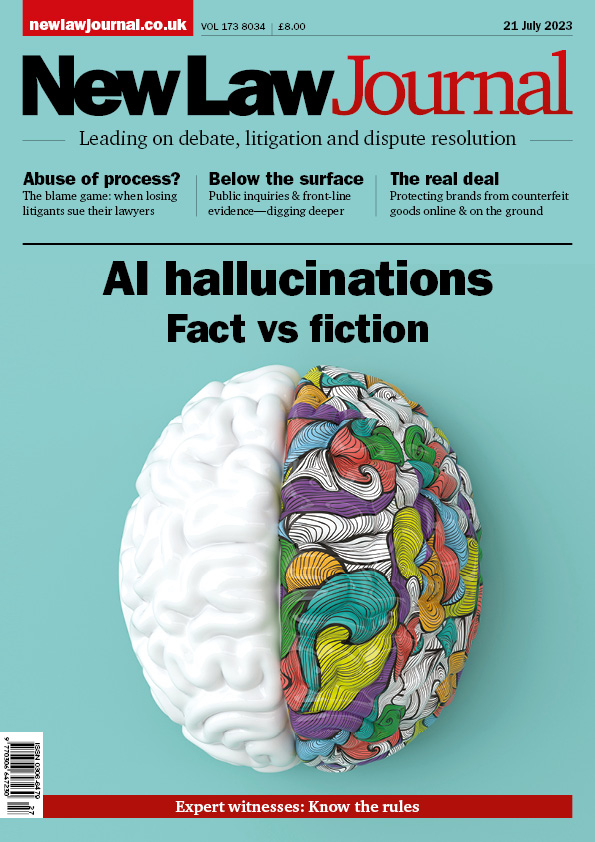THIS ISSUE

Artificial intelligence (AI) tools are known to ‘hallucinate’, making up false information or confabulating to fill gaps in their knowledge. But who is responsible in law for any libel or harm caused as a result? In this week’s NLJ, Chloe Flascher, associate at Withers, addresses this fascinating conundrum.
In this week’s NLJ, Richard Scorer, head of abuse law & public inquiries at Slater and Gordon, highlights the necessity of ‘proper forensic scrutiny’ during public inquiries.
A recent employment appeal concerning a teacher dismissed for expressing gender-critical views on Facebook is a significant development in employment law because the Employment Appeal Tribunal (EAT) focused on the ‘reason why’ question. In this week’s NLJ, Charles Pigott, professional support lawyer, Mills & Reeve, explains why the EAT’s approach ‘marks a significant development’ for discrimination claims, breaking new ground.
'Litigants who lose sometimes blame their lawyer' is a truth widely acknowledged in the legal sector. Writing in this week’s NLJ, Michael Bundock, barrister, dispute resolution, LexisNexis, looks specifically at the circumstances in which a negligence claim may be struck out as an abuse of process because it involves a collateral attack on the earlier judgment.
Public inquiries are most effective when their scrutiny goes below the surface, writes Richard Scorer
A recent Employment Appeal Tribunal ruling on gender-critical beliefs has brought human rights to the fore: Charles Pigott analyses a significant development for discrimination claims
What next when a disgruntled litigant decides to sue their lawyer for negligence after losing a case? Michael Bundock examines when such a claim may be struck out as an abuse
Neil Parpworth outlines the latest thinking—& some potential inaccuracies—from the Home Office on stop & search powers
Billions are spent on counterfeit goods in the EU & UK each year: Matti Lindberg & My Mattsson set out some top tips for brand owners to protect their rights online & on the ground
Artificial intelligence tools are not (yet) above creating false information: who could be liable for the serious harm suffered as a result of publishing that information? Chloe Flascher examines a thorny legal issue
MOVERS & SHAKERS

Freeths—Ruth Clare
National real estate team bolstered by partner hire in Manchester

Farrer & Co—Claire Gordon
Partner appointed head of family team

mfg Solicitors—Neil Harrison
Firm strengthens agriculture and rural affairs team with partner return
NEWS
Conveyancing lawyers have enjoyed a rapid win after campaigning against UK Finance’s decision to charge for access to the Mortgage Lenders’ Handbook
The Crown Prosecution Service (CPS) has launched a recruitment drive for talented early career and more senior barristers and solicitors
Regulators differed in the clarity and consistency of their post-Mazur advice and guidance, according to an interim report by the Legal Services Board (LSB)
The dangers of uncritical artificial intelligence (AI) use in legal practice are no longer hypothetical. In this week's NLJ, Dr Charanjit Singh of Holborn Chambers examines cases where lawyers relied on ‘hallucinated’ citations — entirely fictitious authorities generated by AI tools
The Solicitors Act 1974 may still underpin legal regulation, but its age is increasingly showing. Writing in NLJ this week, Victoria Morrison-Hughes of the Association of Costs Lawyers argues that the Act is ‘out of step with modern consumer law’ and actively deters fairness







